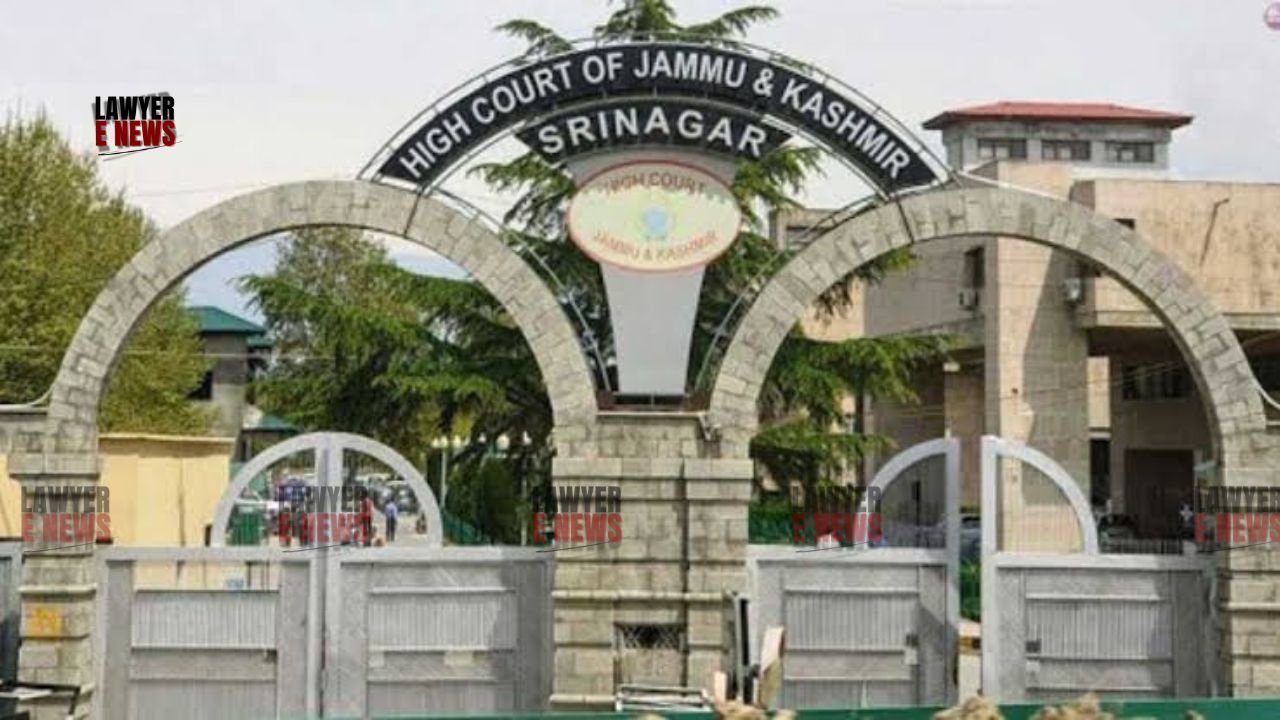-
by Admin
15 February 2026 5:35 AM



High Court of Jammu & Kashmir and Ladakh at Jammu delivered a significant ruling in the case of Musadiq Bashir Khan v. State of Jammu and Kashmir. The court set aside a compensation award against Musadiq Bashir Khan, finding serious procedural irregularities in the previous proceedings before the Commissioner of Workmen Compensation. The case revolves around allegations of employment injury and highlights important aspects of procedural fairness and natural justice.
Abdul Rehman Naik filed a claim on October 20, 2004, under the Workmen Compensation Act, 1923, seeking compensation for injuries sustained while employed by Musadiq Bashir Khan. Naik claimed he suffered a fall on August 26, 2004, while digging a pit, resulting in serious injuries. Musadiq Bashir Khan was named as the respondent, allegedly having engaged Naik as a laborer for digging pits for the Tata Company at Tunnel Top (Lower Munda).
The primary legal issue was whether Musadiq Bashir Khan was duly served notice of the claim and if he had a fair opportunity to present his case. Despite notices being sent, there was ambiguity over whether Khan was properly represented. An unnamed advocate appeared on his behalf, filing objections without clear authorization from Khan.
The court observed that the Commissioner of Workmen Compensation did not diligently record the service of notice or identify the advocate who appeared on Khan's behalf. This lack of transparency raised questions about the fairness of the proceedings.
Justice Rahul Bharti identified multiple procedural flaws, noting that the appellant (Khan) was "condemned unheard," which violated natural justice principles. The court found that the unnamed advocate who appeared in the proceedings never disclosed his name, nor was there any evidence that Khan authorized this representation.
The court held that the Commissioner of Workmen Compensation failed to ensure due diligence in verifying the service of notice to Khan and the legitimacy of the advocate's appearance. Consequently, the award dated June 9, 2012, which ordered Khan to pay ₹250,200 plus interest to Naik, was set aside.
In the interest of justice, the High Court ordered a de novo hearing of the case before the Assistant Labour Commissioner, Doda Camp Ramban. Both parties are directed to appear on October 28, 2024, to ensure proper service of summons and a fair hearing. The court emphasized the need for strict adherence to procedural rules to safeguard the rights of individuals.
Date of Decision: September 9, 2024
Musadiq Bashir Khan v. State of Jammu and Kashmir
